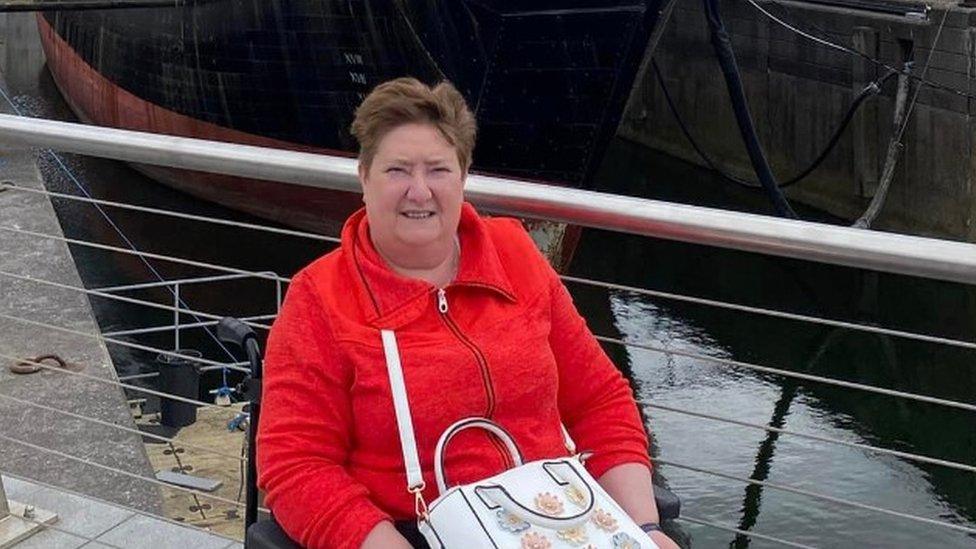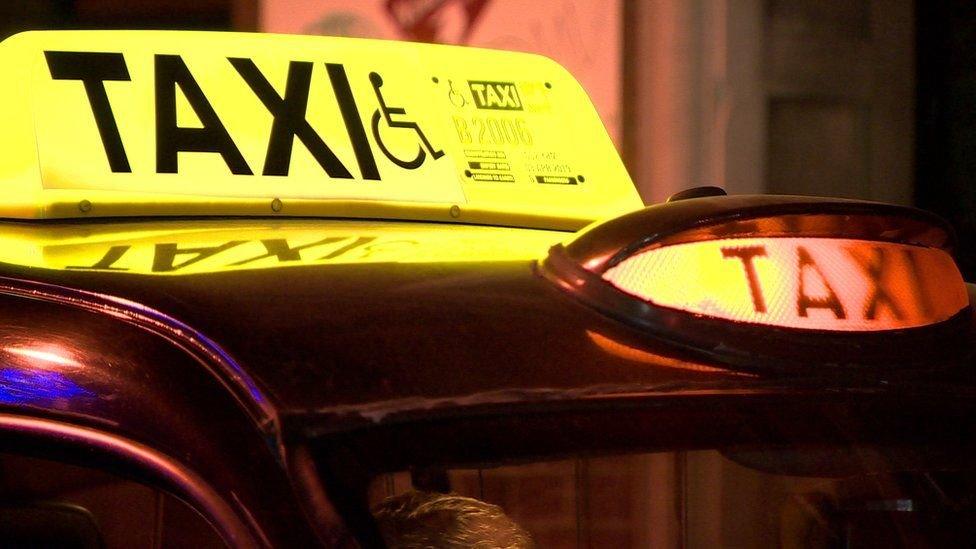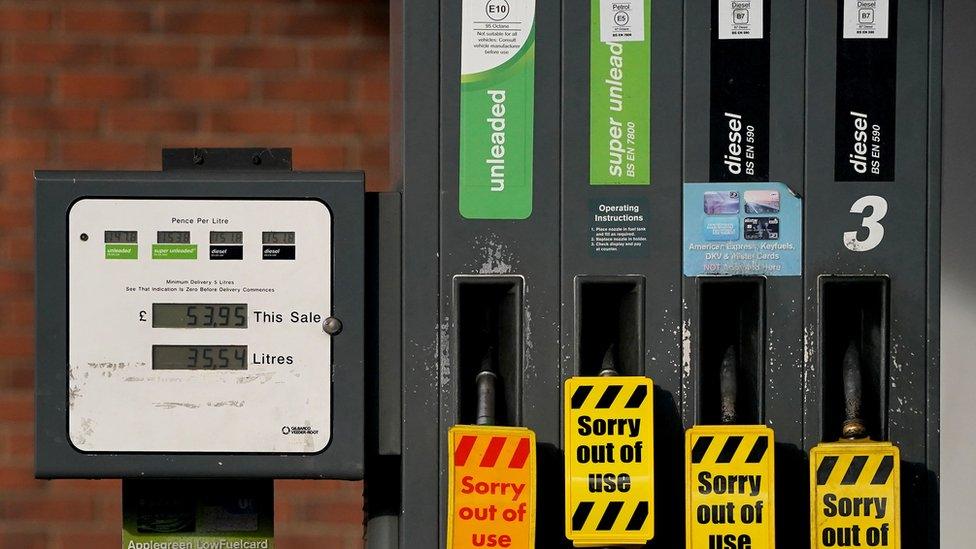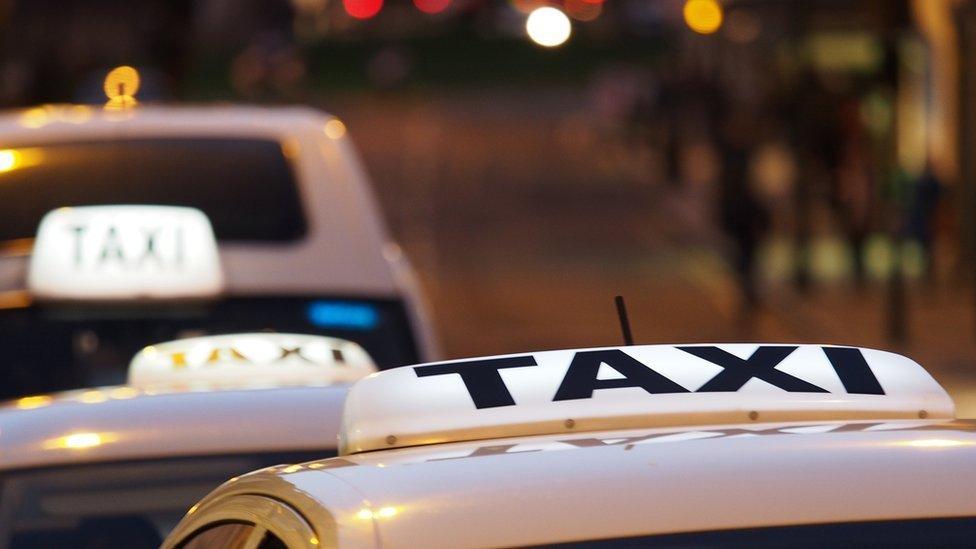Londonderry: Wheelchair-accessible taxi shortage is 'ridiculous'
- Published

Deborah Ferris says a lack of wheelchair-accessible taxis is especially acute in the evenings and at weekends
Taxi services for disabled people are virtually non-existent in Londonderry, a wheelchair user has said.
Deborah Ferris said a lack of wheelchair-accessible taxis was especially acute in the evenings and weekends.
The number of licenced taxis in Northern Ireland has been in decline for a number of years.
Ms Ferris said: "It is just ridiculous, there is meant to be equality, there is meant to be access for all."
Speaking to BBC Radio Foyle's Mark Patterson Show, she said: "I am not blaming any taxi drivers, but to me taxi firms should have one or two wheelchair-accessible taxis."
It was less of a problem before the Covid-19 pandemic, Deborah explained, as there were two drivers she would depend on and trusted but they have since left the industry.
"Now out of all the companies I can hardly find anyone who will take me out and bring me back home," she said.
She has faced the problem too in Belfast and said she believed there was an onus on statutory bodies , like local councils, to improve access to transport.

Department for Infrastructure figures show the number of taxi drivers and vehicles has been steadily falling since 2013
Department for Infrastructure figures show the number of taxi drivers and vehicles has been steadily falling since 2013, when there were almost 16,000 drivers and close to 9,000 vehicles on the roads.
According to the department's published data, external up to the end of 31 March this year, the number of taxi drivers operating in Northern Ireland was 8,781.
The number of Class B taxis, which are certified wheelchair accessible, in Northern Ireland was 380.
"There may also be wheelchair accessible vehicles licensed in other taxi classes, but the department does not hold records of these," a department spokesperson said.
They added that the department "does not hold information of wheelchair accessible taxis by post code in a readily accessible format".
Research conducted by Disability Action on behalf of the Equality Commission suggests that eight out of 10 disabled people feel that transport is not accessible to them.
In the last year there has been a significant drop in the number of wheelchair-accessible taxis.
'Under curfew in own homes'
A spokeswoman for Disability Action said: "Across the region disabled people are facing significant challenges in accessing all forms of accessible transport.
"There are simply not enough accessible-transport solutions to meet demand and this includes public transport. In Belfast- the Glider has been a positive development- but we need to see services like this rolled out across the region."
Disability Action provides bookable door-to-door transport for disabled people, but the organisation said demand outstrips supply.
"In the absence of accessible transport solutions disabled people are at risk of living under curfew in their own homes," said the spokeswoman.
Ms Ferris said she believes a lack of access to transport would put many wheelchair users off going out, especially younger people.
"That is not good for mental health, it is very disheartening," she said.
A local charity, she added, does run a service for wheelchair users, but they "don't have any funding for after 6pm".
Ms Ferris said she is planning a trip to the theatre soon but does not know how she will get there and back.
Related topics
- Published11 June 2022

- Published7 March 2022

- Published9 June 2021
